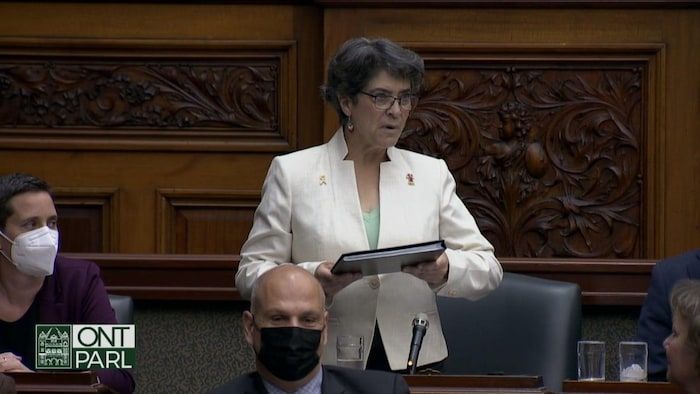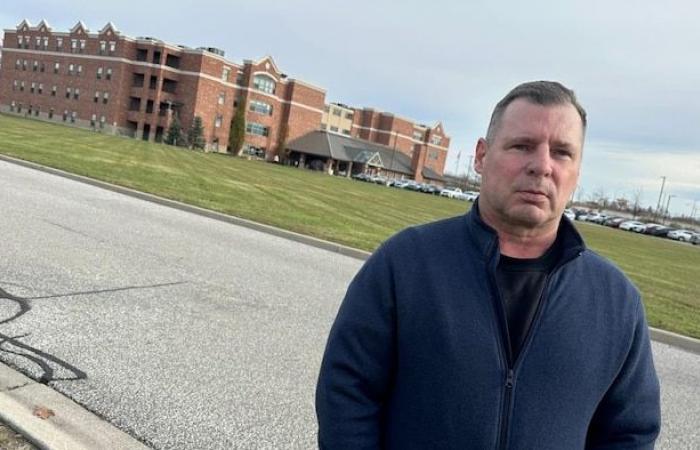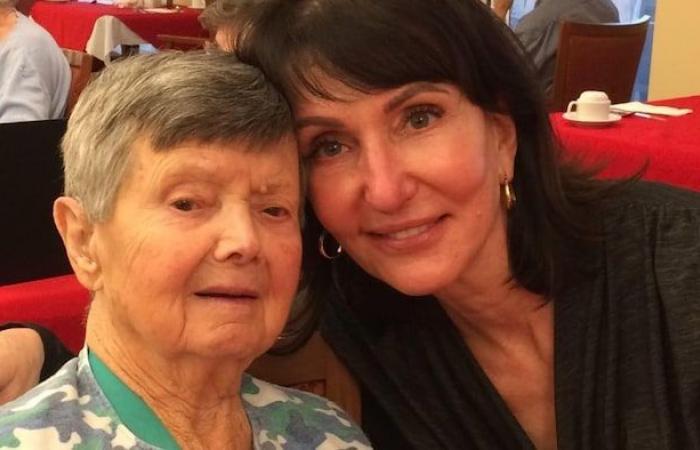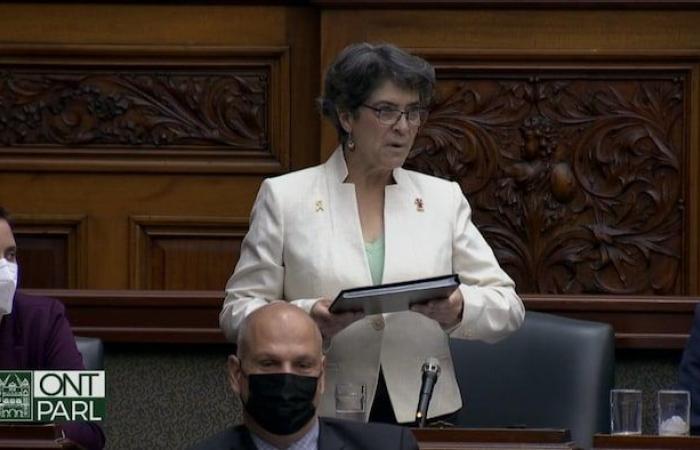It's been more than a year since Paul Ziman has been able to enter his mother's long-term care home. The Village at St. Clair in Windsor sent him a letter in September 2023, informing him of the ban on access to the home, due to his allegedly “threatening and abusive” behavior during a meeting.
The Village at St. Clair also relied on Ontario's Trespass Act to justify its decision.
I'm emotionally and mentally exhausted
explains Mr. Ziman, a Windsor resident.
It's devastating for both of us, especially her. She is the one who is separated from her family.
His mother Anna Ziman, aged 81, suffers from Alzheimer's disease. Mr. Ziman, however, claims that he visited her every day before.
She should be surrounded by her family and I don't think anyone should be able to take you away from your family
regrets Mr. Ziman.
Open in full screen mode
Paul Ziman says he is determined to continue the fight until he gets permission to see his mother in a long-term care home.
Photo: Katerina Georgieva
Anna Ziman's husband, Paul Sr., can no longer visit his wife either, due to his mobility problems.
Open in full screen mode
Anna Ziman and her husband, before the access ban against Paul Ziman
Photo: Paul Ziman
What happened to us is extremely painful. This shouldn't happen to anyone
said his son.
Mr. Ziman had tried to get help through the Long-Term Care Action Line, Patient Ombudsman, Windsor Police Service, Ministry of Long-Term Care and a number of lawyers, but none of his efforts were successful.
Despite everything, he is determined to continue the fight. He still hopes to see his mother again at Christmas.
I would tell her that I love her and miss her, and I would hug her.
The Village at St. Clair defends herself
According to Kristian Partington, spokesperson for Schlegel Villageswho supervises The Village at St. Clair where Anna Ziman lives, the home has an obligation to ensure the safety of residents and visitors.
Visitor restrictions are only in place in extremely rare circumstances
he specifies.
Any decision to restrict visits would only be made if all other reasonable efforts to maintain safety during a visit have been exhausted.
Mr Partington added thatno village would impose restrictions on visitors because they express concerns about the care of a resident or the operation of our homes
.
He would not say, however, whether Anna Ziman had been consulted on the restriction or whether the manner in which a visitor could appeal a restriction had been expressly described.
Attempt at mediation
In a letter addressed to Paul Ziman, the home offered mediation. He was ready, but the plans failed.
The letter, however, indicated that the trespassing order would remain in effect until he demonstrated a change in behavior. I think the system is broken
he regrets.
About a hundred cases in Ontario
There are more than 100 cases across the province involving people who received prohibition orders
says lawyer Maria Sardelis.
She led her own successful battle against such an order when she was prevented from seeing her mother in 2018.

Open in full screen mode
Maria Sardelis and her late mother, Voula Sardelis
Photo : Maria Sardelis
She leads the defense group Access to Seniors and Disabledwhich supports families like Mr. Ziman's.
According to the lawyer, people are silenced because they speak out about the care provided to their loved ones. They want to silence you
for having defended your cause, explains the lawyer.
The consequences of separation are enormous
After the pandemic, it became clear that the mental health of older people had suffered irreparable damage because they were deprived ofmeaningful social interactions
according to lawyer Maria Sardelis.
She added that many families do not dare to defend themselves for fear of reprisals.
In his eyes, the use of the Long-Term Care Home Trespass Act is illegal.
An abusive use of the law?
In March 2021, the Ontario Legislative Assembly unanimously passed Voula Law, named after Maria Sardelis' mother. Although it is not binding, it expresses broad support for the idea that care homes should not be allowed to prevent families from seeing their loved ones.
The problem with trespass law is that there are no consequences for abuse
noted provincial MP Lise Vaugeois, adding that there is no due process and the allegations do not need to be proven.

Open in full screen mode
Thunder Bay-Superior North NDP MP Lise Vaugeois has written letters to all departments in an attempt to end the practice of using the Trespass Act to prevent visitors from entering the homes of long-term care.
Photo: Legislative Assembly of Ontario
The motion was expected to pave the way for legislative changes to clarify the rules for retirement homes, but this has not yet happened.
Ms. Vaugeois and Ms. Sardelis both emphasized that if a person truly poses a threat, shelters should use other legal remedies that require due process, such as charging an individual with mischief or disturbing the peace. , for which evidence would be necessary.
Conflicting interpretations
In an email addressed to CBCa spokesperson for the Ministry of Long-Term Care said the Long-Term Care Adaptation Act gives operators the discretion to ban visitors if the safety of residents could be put at risk
.
Lilian Bahgat, supervising lawyer at the Community Legal Aid of the University of Windsor, recognized that in some extreme cases, institutions would have the right to act in this way. However, a home should always consult its residents first and have an appeals process, she believes.
Additionally, these cases are complicated due to the intersection of different laws covering the rights of the banished person and the policies of the home.
With information from CBC's Katerina Georgieva





